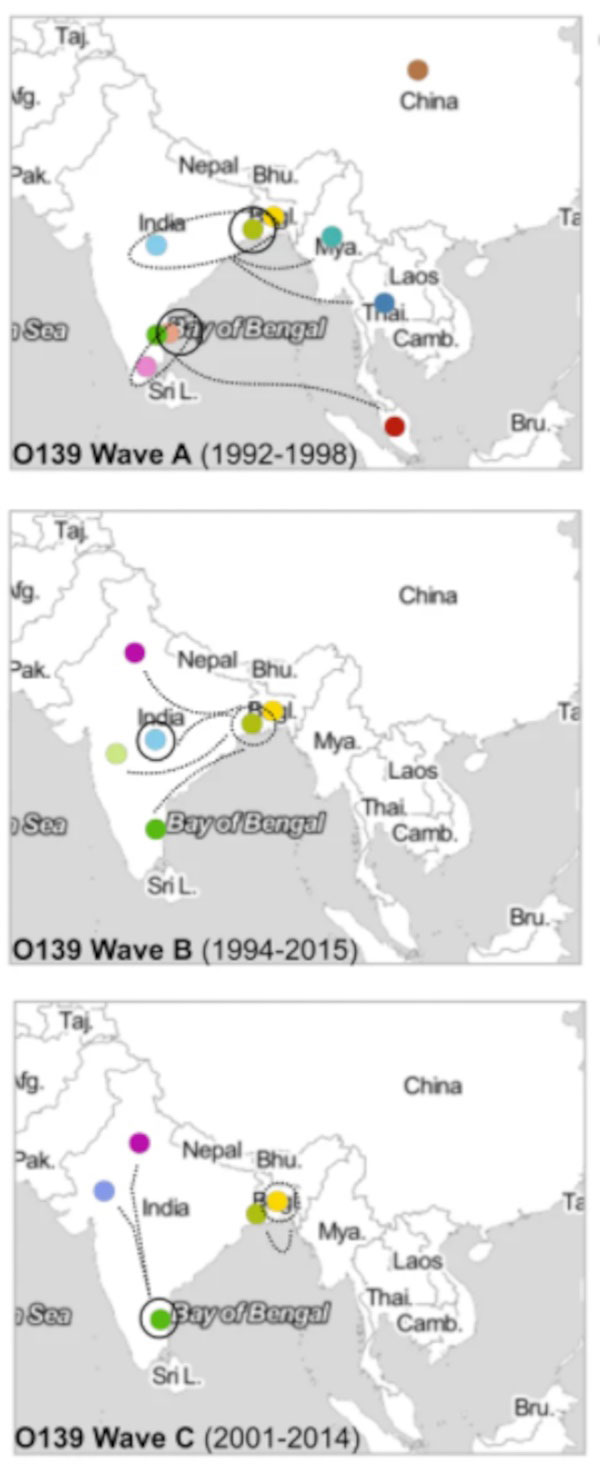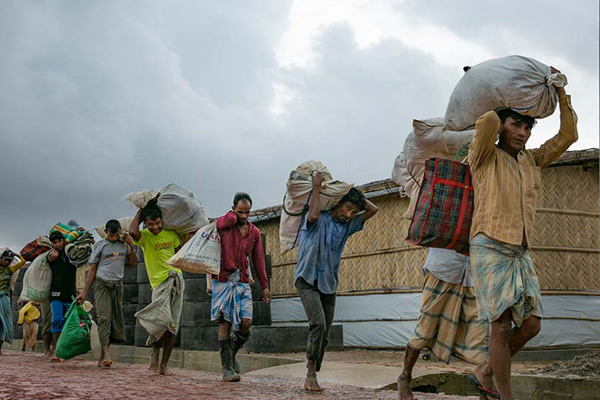Scientists urge close monitoring of cholera variants
New cholera variants capable of causing large outbreaks could emerge. Constant monitoring is the only way to prevent possible pandemics. World has seen seven pandemics of the infectious disease.
- 21 July 2022
- 3 min read
- by SciDev.Net

A particularly infectious strain of cholera, predicted to lead to an eighth pandemic of the disease, fizzled out after it suddenly became susceptible to antibiotics, but researchers are calling for close monitoring of the bug to prevent future outbreaks.
Cholera, an acute diarrhoea disease which spreads through contaminated food and water, first emerged in the Ganges delta in 1817. Seven subsequent cholera pandemics killed millions of people across all continents.
“There’s a real possibility that another cholera variant may emerge with the potential to cause large outbreaks, which could lead to the eighth cholera pandemic”
Ankur Mutreja, Cambridge Institute of Therapeutic Immunology and Infectious Disease
Linked to poor access to clean water and sanitation, the disease typically affects vulnerable communities such as refugees. There are an estimated 1.3 to 4 million infections each year, according to the WHO, and estimates for the number of deaths vary between 21,000 and 143,000, but the true burden is unknown as many cases go unreported.
Two serogroups of V. cholerae, known as O1 and O139, are responsible for cholera outbreaks. Serogroups of bacteria have a common antigen — a substance that is foreign to the human body that can induce an immune response and produce antibodies.

Researchers show in a study published this month in Nature Communications, how O139 V. cholerae, instead of causing the eighth pandemic as predicted, disappeared. But it caused several outbreaks in India and Bangladesh in the early 1990s and temporarily displaced O1 V. cholerae as the dominant, disease-causing variant.
Have you read?
By 2015, O139 V. cholerae had substantially declined while the O1 variant returned to being the dominant variant and is currently responsible for the large outbreaks in Yemen and Somalia. The O1 variant, which emerged in the 1960s, replaced all pre-existing variants.
In the study, the researchers examined 330 samples of O139 V. cholerae taken between 1992 and 2015 and observed that over time there were significant changes in its genome and these changes caused the variant’s “unexpected decline”.
“The O139 variant, when it first appeared, was heavily loaded with antibiotic-resistant ‘cassettes’ that likely made it more successful than the O1 variant,” said Ankur Mutreja, corresponding author of the study and a global health scientist affiliated with the UK-based Cambridge Institute of Therapeutic Immunology and Infectious Disease. Antibiotic-resistant cassettes carry specific genes responsible for resistance.
“On the other hand, the O1 variant, which was previously largely sensitive to antimicrobials, gained resistance and re-established itself as the main etiological agent of cholera,” Mutreja told SciDev.Net.
“There’s a real possibility that another cholera variant may emerge with the potential to cause large outbreaks, which could lead to the eighth cholera pandemic,” said Mutreja. “Continuous surveillance of the variants in circulation is our best chance of preventing mass outbreaks.”
According to the researchers, the cholera bug is not currently monitored on a regular basis to keep ahead of it as it evolves and to plan changes to vaccines and public health responses.
Neelam Taneja, professor of medical microbiology at the Postgraduate Institute of Medical Education and Research, India, told SciDev.Net that “continued monitoring of this potentially pathogenic organism is required at each level, including its genetic diversity and presentation of disease in the human population”.
“By continually checking the genetic footprints of different strains all over the world, we can avoid another pandemic as observed in the history of cholera that claimed the lives of millions of people,” she said. “Even with research advancements and availability of cholera vaccines, the disease remains a big threat to mankind, especially in developing countries.”
Website
This article is republished from SciDev.Net under a Creative Commons license.
This piece was produced by SciDev.Net’s Asia & Pacific desk.









